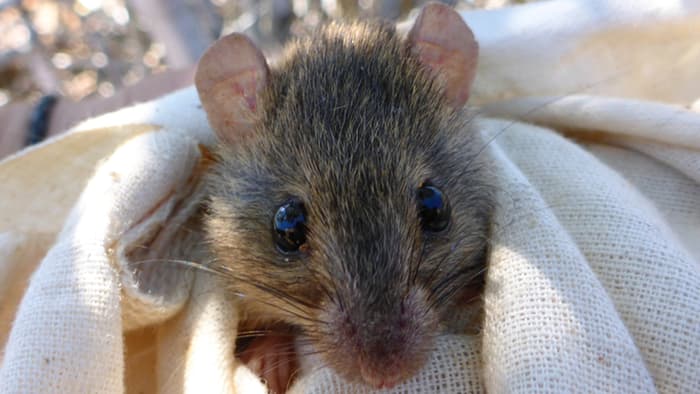Climate change is by definition a global phenomenon, but there are few locations feeling its immediate impacts like Australia's Great Barrier Reef. Just a month after local scientists were left reeling as warming seas triggered the worst coral bleaching event in its history, researchers are now reporting the reef's only endemic mammal species has become extinct as a result of rising sea levels, describing its demise as the first mammal species to be killed off by human-induced global warming.
The Bramble Cay melomy is a rodent that has lived on Bramble Cay, a tiny vegetated island in the Torres Strait off the northern tip off the Great Barrier Reef, for tens of thousands of years. But lately its diminishing population has raised concerns with ecologists, with surveys in the early 2000s detecting no more than 12 individual melomys scurrying about.
"In 2002 and 2004 low numbers of this species were recorded and we were concerned," Dr Luke Leung, ecologist at the University of Queensland, tells us. "By the time we got back to the island in 2011, we found no more of these animals. And the island is very small, you go to the beach and you can see everything. The absence of something is not because you couldn't find it, it's because it is not there anymore."
Leung and his colleagues returned to the island in August and September of 2014 in a last-ditch effort to sniff out any remaining melomys. Their work involved laying more than 900 traps and looking by daylight, but they found not a single trace of the now-extinct rodent.
"When we were there we found evidence of seawater inundation," Leung says. "So we can see the erosion, the tidal ingression onto the cay. The cay has a freshwater supply that supports freshwater plants, and when we were there we saw a major reduction in the plant community. No plants means no food for these vegetarian animals."
Leung and co-author Natalie Waller have just published a report on their findings, recommending that the status of the Bramble Cay melomy from endangered to extinct. In it they report that the area of the cay above high tide has decreased from around 4 ha to 2.5 ha between 1998 and 2014, the smallest size recorded for the island to date. Meanwhile, vegetation coverage dropped from around 2.2 ha to 0.065 ha between 2004 and 2014, a 97 percent loss over a decade.
"It has lost its vegetation cover, it has reduced in size, but the major impact is seawater inundation," says Leung.
The Queensland Government's Department of Environment and Heritage Protection website lists a number of factors that threatened the survival of the Bramble Cay melomy. The list includes the introduction of weeds, predators, novel diseases, and the fact that they appeared to inbred. But rising sea-levels, more frequent and severe storms and the resulting seawater inundation appears to be what tipped it over the edge.
"We can't really point the finger at any other thing," says Leung. "This species has persisted very well for a very long time on such a small cay. We found evidence of tidal surge killing the plants and leading to the disappearance of this species on the island, so we are very confident that this extinction was caused by climate change."
According to the US Environmental Protection Agency, average global sea levels have risen at a rate of 0.11 to 0.14 in per year (0.28 to 0.36 cm). This is around double the longer-term trend between 1880 and 2013, where they rose at an average rate of 0.06 in (0.15 cm), which followed a preceding period of around 2,000 years with little change. So considering this accelerating trend, it's entirely possible that the Bramble Cay melomys won't be the last island inhabitants to have their worlds washed away by rising sea levels.
"Indigenous communities around the same area have also suffered from increased intensity and frequency of storm surges," says Leung. "Some communities have lost their freshwater supply because of sea levels and seawater surging into their freshwater dam. So it is happening in the Torres Strait in Australia and it is a real wake up call. It's a wake up call for Australia and perhaps a wakeup call for the world."
Leung's report on the extinction of the Bramble Cay melomys can be accessed online here.
Source: University of Queensland


